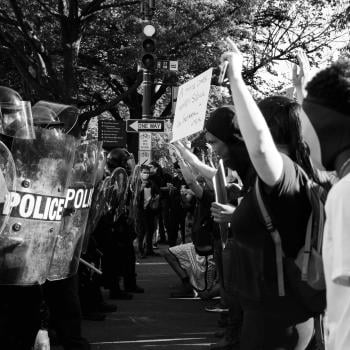
Ego-Shadow Split
“I would rather be whole than good.” – C.G. Jung
The underlying draw for individuals to enter shadow work is their desire to be good. Usually there is a “bad” pattern, internal struggle, or relationship dynamic they’d like to stop or move past. Eventually they discover there is no such thing as goodness, only wholeness.
Episcopal priest and jungian analyst, John A. Sanford was asked in an interview, “Why do most people fail to recognize the relationship between evil and excessive ‘goodness’?” He goes on to talk about the split between the ego and shadow–that is who an individual knows himself to be (ego), and who he is, but wishes not to be (shadow).
When I first present clients/students with the concept of shadow, many assume shadow is bad. As Murray Stein puts it, this is typically because they’ve conflated darkness with evil. When a part of our personality is shadowed, it exists in darkness and remains hidden. But our shadow is not bad or evil, it is simply unknown. In Fact, Jung once said that shadow is 90% gold! Shadow wants to be known, and it innately seeks relationship with our conscious self (ego).
Clarifying Persona
However, if the ego continues to deny its less desirable hidden side (shadow), it will develop a highly curated persona to further defend itself from shadow. Persona gets a bad wrap. It is commonly understood to mean fake. But a healthy persona is one that helps us meet and exist in our environment the way we may wear a waterproof jacket on a rainy day. That jacket is yours, and is likely an expression of a part of your personality. However, it is not your whole personality, and when it’s not raining you may hang it up for a while. We have different personas for different environments, but they are all ours, yet not the totality of who we are. Make sense?
The persona is also thought of as the opposite of the shadow. The more the ego splits from the shadow, the more one-sided and central the persona becomes. As the shadow grows in depths and breadth, it loses connection to our conscious personality. Simultaneously, the persona narrows and condenses the personality to a caricature of itself.
An individual who has a highly developed and detached persona, we might say, is quite literally “scared of her own shadow.” Here, life narrows, and vast energy reserves are dedicated to keeping the whole system from erupting. (Read my article: How to Address Emotional Energy Leaks for practical tools.)
Bias Towards Goodness Over Wholeness
Culturally in the West, we have a bias toward goodness over wholeness. This bias serves to exacerbate the ego-shadow split by prompting us to identify in one of two ways:
- Identify with the good, disown and project the bad: We are encouraged to identify and associate with the good while projecting our disowned “bad” onto others–this is common in fundamentalist or extremist groups who view themselves as God’s “chosen people,” or holders of objective truth. It is also at the heart of the “Karen” archetype, and all forms of road rage. Everyone else is a “sinner,” “evil,” “lost,” or just wrong.
- Identify with the bad, disown and project the good: Here we are taught to identify with the bad, and disown and project goodness onto God, a pastor, guru, teacher, high control religious groups or political party. The entity onto which we project becomes “savior,” “redeemer,” and we are “lost” without it. If we project the good externally, we remain dependent on the benevolent actions and whimsy of the Ideal Other.
When we disown and project our goodness and/or badness, wholeness is not possible, because we either further shadow the bad, or inflate the good in an attempt to remain acceptable. Our dependence shifts to codependence, because our agency and identity are supplied by someone else, and not personally intrinsic.
Shadow Neglect & Ego Regression
“An exclusively religious projection may rob the soul of its values so that through sheer [lack of nourishment] it becomes incapable of further development and gets stuck in an unconscious state.” – C.G. Jung
“Let the little children come to me, and do not hinder them, for the kingdom of heaven belongs to such as these.” – Jesus in Matthew 19:13-30
Whether we project onto God, an organization, or an enemy, it does not matter. If we never own back our projections we are susceptible to becoming stuck in this unconscious and stifled state.
Childlikeness is a motif in the New Testament. Often we see Christ instructing followers to “become like little children,” or “be born again.” Many Christians have taken Jesus’ words to mean they must dissolve their ego in favor of an excessive childlike-goodness. They feel that since it was their innocence and dependence that connected them to God, then ongoing connection requires they remain this way. Instead of maturation of the undeveloped shadow, there is a regression and stunting of the conscious personality.
If our ego is underdeveloped, we outsource the simplest actions and life tasks to “God,” and then move through life in a zombie-like fashion. We are bodily present, and perhaps have moments of intense animation, but much of our personality is unavailable. The inability to make decisions, take risks, hold boundaries, take ownership of success, or express emotions like anger and fear, are common signs of an underdeveloped ego.
Connecting with the Self
“[…] a genuine insight into the shadow also calls out what Jung called the Self, the creative center. […] Then a person is much less likely to become affiliated with genuine evil, because the integration of the shadow is always concurrent with the dissolution of the false persona.” – John A. Sanford in Meeting the Shadow
Evil is not a product of shadow directly. Most evil is the inevitable result of an ego living in defense of its shadow.
Shadow work is not a perpetual and compulsive search of our hidden self. Engaging our shadow does not result in a ‘dog chasing its tail’ exercise. Shadow work puts us in contact with the Self, what Jungians call the “center and circumference” of who we are. This contact allows us to hold our entire life, our whole personality in the same frame. It gives us courage to engage our inner depths, and wild potentials for our lives. It brings clarity, and resolve, and frees us from stagnation. We become more solid, and somehow more flexible too. Most of all we can lay down our immature defenses of assumed or projected goodness. We can accept our lives as they are, and take steps toward greater wholeness.
Want to Engage Further?
- 1:1 Shadow Work: Want to do some integrative work around a detached persona or deflated/collapsed ego? Got some energy stored up you’re ready to integrate? Dr. Simmons offers 1 on 1 shadow work facilitation for this work. The cost is $60/1 hour session. You can email him directly at [email protected] for more information.
- Upcoming Course: 5 Week Course: Shadow Work for Emotions & Relationships– Fridays, April 10th through May 8th | 9am-11am PST | $200













